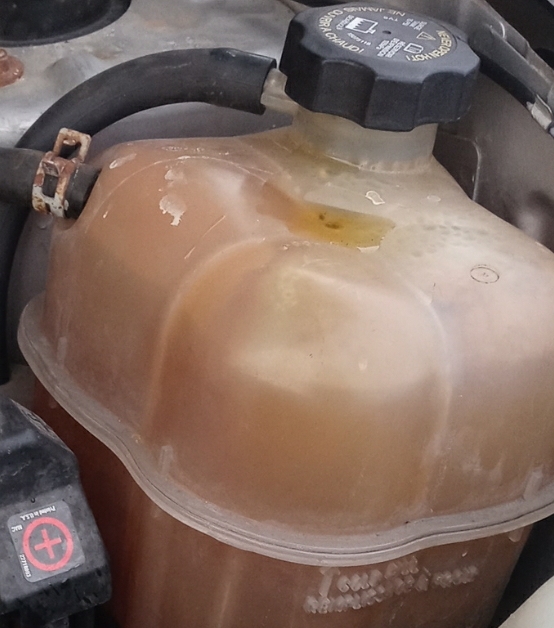I don’t know if this topic is appropriate for this community but there is a lot of waste generated with the clothing industry so I hope it fits.
The only resource I know of to find ethically sourced clothes is https://goodonyou.eco/. However, those can be pretty expensive so lately, I’ve been looking for more alternatives that are more affordable. What do you guys think of Salvation Army, Goodwill, Thrift stores? I’ve been hesitant on going there because I fear not having a good selection of clothes. If you guys have any experiences with these that would be amazing
Thrift stores are probably the most ethical because it’s all donated and second hand. It’s already been created, bought, and worn before you see it.
The selection isn’t bad at all. Just go look.
I found heaps of clothing over the years with tags still on!
Interesting. I’ll see if I can go to nice areas and check them out.
What about the ethics of getting things for free, then selling those things for profit, even price gouging the items like good will? Shouldn’t the clothing be free in an ethical world? Just spitballing ideas for a brighter tomorrow.
Price gouging? All the clothes at my goodwill are cheap. They even had a sale recently where any piece of clothing was $2 flat.
What kind of price gouging have you seen?
I don’t know if the clothing should be ‘free’ from these places because they do still process the donations, and I don’t even mind them putting higher prices on items they’ve identified as being worth more… What they shouldn’t be doing is underpaying their employees while corporate leadership is making millions.
My big problem with them is how they were underpaying the disabled. I don’t know if they have changed, but that was really super not cool.
I’ve always thought second hand/thrift stores were great for picking up stuff cheap. The trick (at least in my area) is to hit up the ones in the nicer areas of town, the selection is usually better and it hasn’t been picked through as much.
Edit: Just to add, the day of the week, and even season matters. Some places tend to put out new stuff at certain times, some just toss stuff on the shelves as they get it. So sometimes you can go one day and make out like a bandit, other days there’s squat. You just have to visit a place a few times before you get a feel how they do things. Also mornings are usually better than afternoons.
Also garage sales. Same basic idea applies, the garage sales in the nicer areas usually have nicer stuff. The earlier you can hit them up the better selection you’ll find, but you can often get better deals near the end of the day when they just want to get rid of something. (I bought 2 decent dressers, 2 shelving units, and a small desk for $40 last summer just because the guy didn’t want to have to drag it all back into his house.)
This is ridiculously hard, I have spent hours searching. Much of what you can find is either greenwashed, or doesn’t touch social issues like sourcing.
In the end, (beyond thrifting, as noted), the most success I’ve found is with small-time social enterprises and/or B-Corps, and through them i found out which (if any) certifying bodies exist who audit transparency were around and not just a bought certificate.
I was looking local to Australia and found the Social Traders, but the global body is SEWF and WTFO who can point you in a good direction for your locality.
Having said that, I’m at the point where I’m just considering finding ethical fabric, because I’m both too picky and have unusual adaptive requirements to accommodate.
Yeah without some deep research, it’s a bit difficult to find who’s greenwashing and who’s genuinely green.
Something that goes underrated is making your own clothes and just having to worry about sourcing fabrics. The fit is unmatched, but I’ll admit there’s some upfront cost in both tools and time investment to get competent at the skill.
deleted by creator
Thrift can be good but most of the clothes are ugly, hard to find something good. Vintage can be good but prices will be higher.
Thrifting is always best IMO. The selection depends on your location; I’ve noticed smaller, more rural areas tend to have better selections than suburban areas or cities. There’s also online thrifting through sites like thredup and vinted - obviously, your mileage may vary. I use FB marketplace to get home goods but I’m sure it’s good for getting local used clothes, too.
I’ve had good experiences at thrift stores, especially local ones. While they’re definitely filled with basic stuff like t-shirts, I’ve found plenty of cool stuff too. They’re not one-stop shops for sure though, you’d wanna do a few stops at a couple to get a really diverse wardrobe. I’m also the kind of person to wander and look at other stuff in thrift stores too, I’ve found some cool historical stuff about my area in them.
As far as the organizations behind them go, I’d generally try to avoid chains like Goodwill or Salvation Army because they’ve done (and probably are still doing) some sucky stuff, if I remember right Salvation Army donates/d to anti-LGBT groups and Goodwill exploits disabled people, but I have no sources on hand so take it as you will.
If you’re in America…
If you want good results while thrifting it pays to get comfortable with going regularly. If you go consistently and pick through stuff you’ll find great stuff, but ultimately you’re picking through a haystack for the couple of needles you care about- youre getting cheap clothes but putting in your time. Also its way more fun if you go with friends, and then you can also learn what each other like and keep an eye out for each other :)
I’ve always thought of Patagonia being decent, does anyone know of ethical concerns with them? They’re pricy though, and only have specific kinds of styles
As others have said charity shops are definitely a good choice. Here’s two websites that list ethical/environmentally councious clothing companies if you do want to shop brand new:
https://www.ethicalconsumer.org/fashion-clothing/a-to-z-ethical-fashion-brands
https://thegoodshoppingguide.com/subject/ethical-fashion-retailers/
Try Goodwills in rich suburbs, where poor people can’t get to on foot. Goodwills in urban areas will be pretty picked-over.








